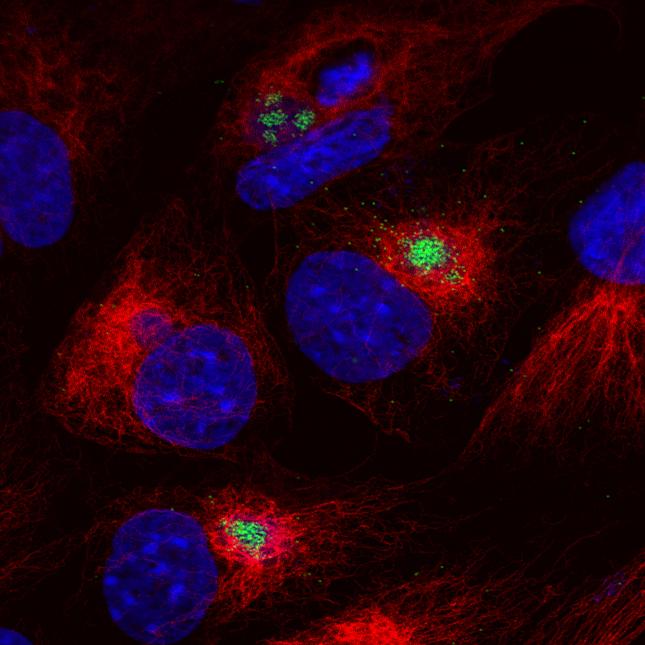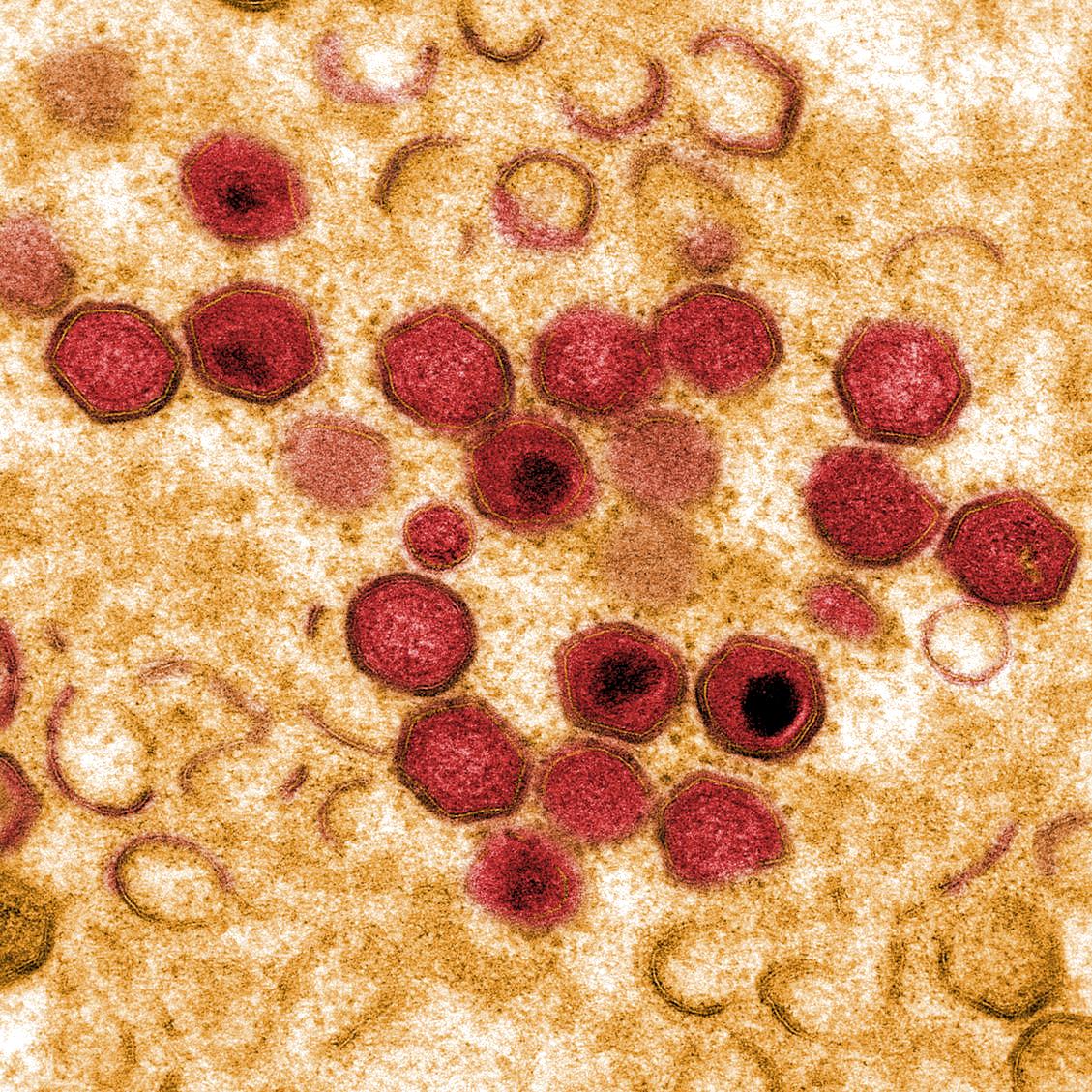Deletion of African swine fever virus interferon inhibitors from the genome of a virulent isolate reduces virulence in domestic pigs and induces a protective response
African swine fever virus (ASFV) encodes multiple copies of MGF360 and MGF530/505 gene families. These genes have been implicated in the modulation of the type I interferon (IFN) response. We investigated the effect of modulating the IFN response on virus attenuation and induction of protective immunity by deleting genes MGF360 (MGF360-10L, 11L, 12L, 13L, 14L) and MGF530/505 (MGF530/505-1R, 2R and 3R) and interrupting genes (MGF360-9L and MGF530/505-4R) in the genome of the virulent ASFV isolate Benin 97/1. Replication of this deletion mutant, Benin?MGF, in porcine macrophages in vitro was similar to that of the parental virulent virus Benin 97/1 and the natural attenuated isolate OURT88/3, which has a similar deletion of MGF360 and 530/505 genes. Levels of IFN-? mRNA in macrophages infected with virulent Benin 97/1 isolate were barely detectable but high levels were detected in macrophages infected with OURT88/3 and intermediate levels in macrophages infected with Benin?MGF. The data confirms that these MGF360 and MGF530/505 genes have roles in suppressing induction of type I IFN. Immunisation and boost of pigs with Benin?MGF showed that the virus was attenuated and all pigs (5/5) were protected against challenge with a lethal dose of virulent Benin 97/1. A short transient fever was observed at day 5 or 6 post-immunisation but no other clinical signs. Following immunisation and boost with the OURT88/3 isolate 3 of 4 pigs were protected against challenge. Differences were observed in the cellular and antibody responses in pigs immunised with Benin?MGF compared to OURT88/3. Deletion of IFN modulators is a promising route for construction of rationally attenuated ASFV candidate vaccine strains.

